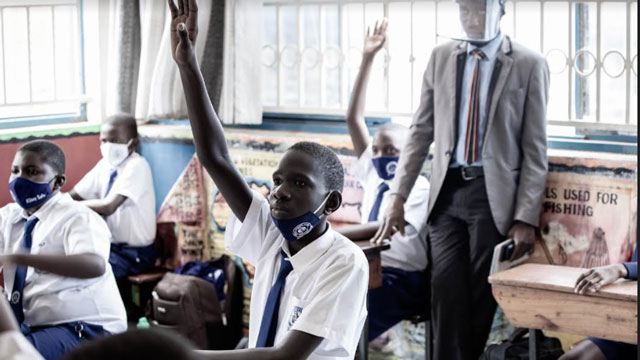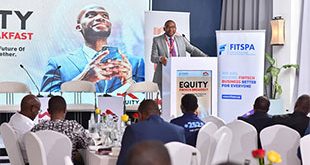
New challenges as world celebrates International Literacy Day
Kampala, Uganda | FEATURE | Long before digital platforms went from a luxurious accessory for learning to a necessity for education continuity in the current climate, Robert Atwine, a Digital Education Enthusiast, had been working to streamline EdTech solutions in Uganda.
With a few years of experience under his belt, Atwiine worked as the Country Director of Endless Technologies, an EdTech company increasing access to education resources such as textbooks and applications that help children learn a plethora of subjects.
What he appreciates about his work was the fact that it addressed the digital divide from every crucial angle. The company’s awareness of low internet coverage in developing countries pushed it to provide technology that did not require the internet.
Currently, Atwiine works as the Project Lead of Enuma I, an EdTech company that specializes in imparting foundational learning skills into children from 10 years and below.
Using their computer tablets, children are able to learn how to draw, read, count and learn a language. The children are also taught through games and quizzes that provide an interactive experience with the child who simultaneously learns while having fun. As they facilitate learning through this technology, Enuma also gathers data from low income communities and informs on how technology can be improved.
The data helps to assess how well the kids are learning and at what pace. Through Enuma’s research, they have found an interesting dynamic in the attitude towards EdTech solutions between urban and rural populations.
Atwine says, “Whereas urban populations have the purchasing power for the technology, they don’t have as much intrigue or excitement towards adopting it. This is because they have been exposed to many technologies before which have left them underwhelmed while the rural populations show intrigue and willingness to purchase the EdTech solutions because they are novel. But, they are without the resources.”
Uganda certainly could use EdTech to improve literacy for children but if the digital divide is to be reduced, Atwine says that income inequality must be addressed. To resolve the problem, the government should join Non-Government organisations to shoulder the costs of these EdTech resources for at least low-income populations.
Atwine also recommends standardizing the EdTech curriculum nationally and the creation of an EdTech policy, to ensure that students everywhere are exposed to content that is the same at the same time. This is expected to level the playing field for rural and urban communities.
Every year, on September 8, the world takes a pause to reflect on literacy; the ability to read and write. According to the United Nations Educational, Scientific and Cultural Organisation (UNESCO), there are at least 773 million people who lack basic literacy skills presently. International Literacy Day (ILD) exists to prompt individuals and communities to join efforts to bridge the Literacy gap.
With the ongoing coronavirus pandemic this year, the theme for ILD this year is “Literacy for a Human-Centered Recovery: Narrowing the Digital Divide”.
The celebrations arrive at a time when efforts to educate children and youth seem to have come to a standstill.
While some students in urban areas have managed to continue learning on zoom and other online platforms, students in rural areas have been left behind due to the lack of access to resources like electricity, the internet and digital gadgets. This is the reality of Uganda’s digital divide, the gap between those who have access to computer technology and those who do not.
The Project Coordinator, National Information Communication Technology (ICT) Initiatives Support Program at The Ministry of ICT and National Guidance, Richard Mukaga makes a strong case for more internet enabling infrastructure to be put in place.
He says the Ministry of ICT is willing to support entrepreneurs who are innovating solutions towards these challenges. So far, the ministry is working with some companies to provide answers to Uganda’s education sector and building a learning platform similar to Zoom.
The Future Lab Lead of The Innovation Village, Samantha Niyonsaba says that it is possible to bridge the digital divide to enable meaningful literacy learning outcomes but it begins with awareness of the existing solutions in the ecosystem.
“There are solutions. It’s critical for us to take note of tech solutions that have been developed by entrepreneurs in solving the challenges in education,” Niyonsaba says.
Through scouting the ecosystem for innovations, the department is impressed by the innovations found and the amount of research and data available. She gives an example of Kaino Africa that has digitised an entire curriculum.
Niyonsaba says, through its work, the Future Lab is highlighting innovators in EdTech and mobilizing the necessary support from stakeholders towards their solutions.
For six months now, matters of digital resources and their potential to kick-start the education sector has formed the largest part of the EdTech Mondays Show held in partnership with The Mastercard Foundation.
The consensus is that there has to be collaboration to end disparities such as high internet costs, connectivity failure, tech-enabling policies, electricity access and limited access to learning material that caters for different learning needs.
Niyonsaba hopes that through the solutions that have come forward, various stakeholders can see how seamlessly and efficiently technology can deliver education without leaving anyone behind. The hope is that this becomes the springboard for our action to implement these EdTech solutions.
 The Independent Uganda: You get the Truth we Pay the Price
The Independent Uganda: You get the Truth we Pay the Price



